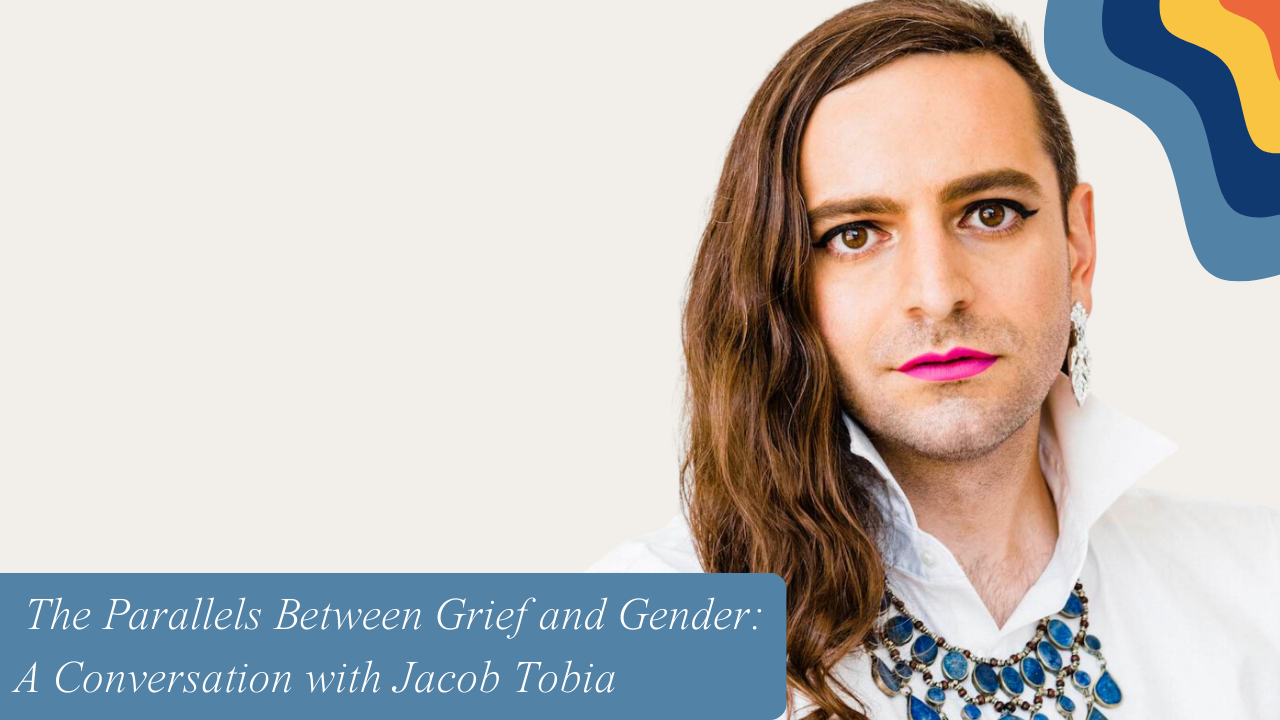The Parallels Between Grief and Gender: A Conversation with Jacob Tobia
Jul 02, 2023
We recently had the privilege of hosting a heartfelt conversation with Jacob Tobia, actor and the author of Sissy: A Coming-of-Gender Story, on our Grieve Leave Instagram (ok but do you and all of your friends follow us yet?). Jacob candidly shared their personal experiences with grieving their grandmother as a child, and, more recently, the death of their father. They also offered profound insights on the parallels between the binaries our society places on both gender and grieving. To watch Jacob’s full interview with Grieve Leave founder, Rebecca Feinglos, click HERE – and read some of our key takeaways from the conversation below:
Grief is a lifelong process.
"What surprised me the most was how much time I needed. I didn't understand just for how long I would be bursting into tears at random shit and just how long I would have that kind of profound heaviness that comes up out of nowhere. I was surprised by how long it took. I thought I was going to be able to snap back in some sort of instant way."
Jacob's experience highlights the significance of granting ourselves the necessary time and space for grieving, throughout our lives. Frustratingly enough, grief doesn't adhere to a predetermined schedule or a linear “healing” trajectory
Even though the world might think it is, grief is not binary.
“People see grief as a binary. They see it as like: ‘Okay, are you done grieving? You're finished?’ Everyone has a different idea of how long that should take, right? And you're like: ‘No, dear, I am forever changed, and I will forever be evolving in this grief. It will never leave me. It is now an indelible mark in my heart, but not necessarily a scar per se, but it's certainly a fundamental shift or like a new branch of your tree of self that you are growing.’”
Grief is often perceived as a binary process with a definitive end. You’re either grieving, or you’re not – you’re all finished. But, Jacob’s words remind us to embrace that grieving can be a transformation, acknowledging that our grief becomes an intrinsic part of who we are.
When we grieve our loved ones, we confront our own mortality.
“I died with my dad…we died together. I didn't actually die, but I think in the death and dying process with family and with loved ones…the most radical thing you can do is to die with them…to confront your own mortality. Together, to look at the thing in the face, side-by-side with that person."
Jacob's words offer a radical alternative to traditional narratives surrounding death, urging us to share that journey with our loved ones and confront the inevitable with courage and solidarity.
During our conversation, Jacob also discussed grief within the trans community, the anger we can feel in our grief, and the pressure many of us feel to live up to our deceased loved ones’ wishes for us. Watch the full interview HERE.
To connect with Jacob Tobia, follow their Instagram and get their book, “Sissy: A Coming-of-Gender Story,” HERE.
Join the Grieve Leave movement
Share your info to join our Grieve Leave community. You don’t want to miss anything!


